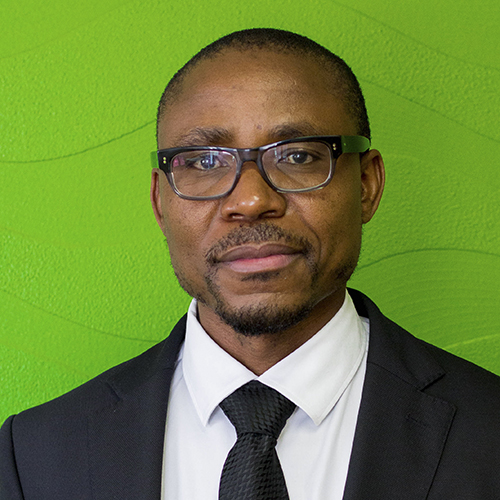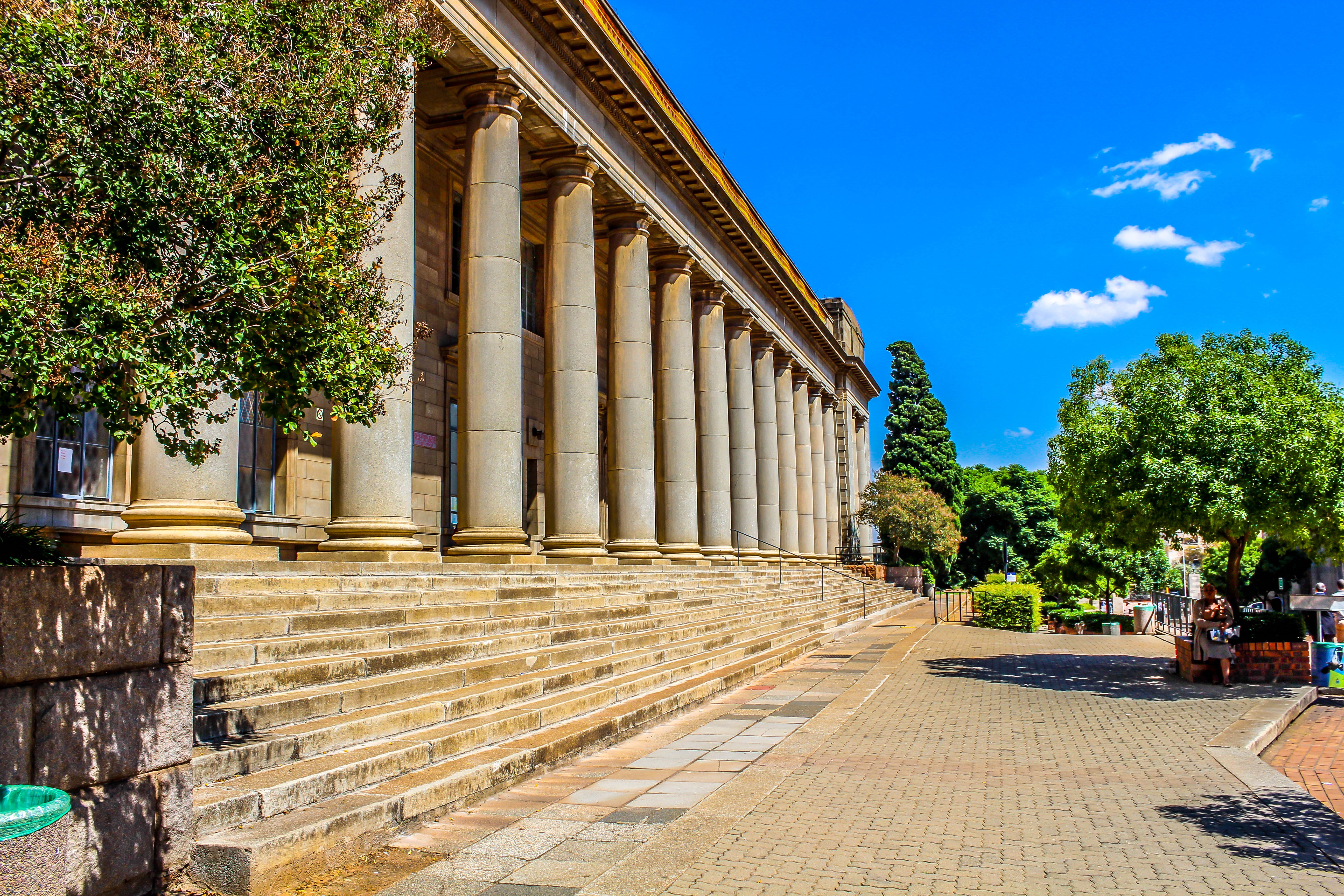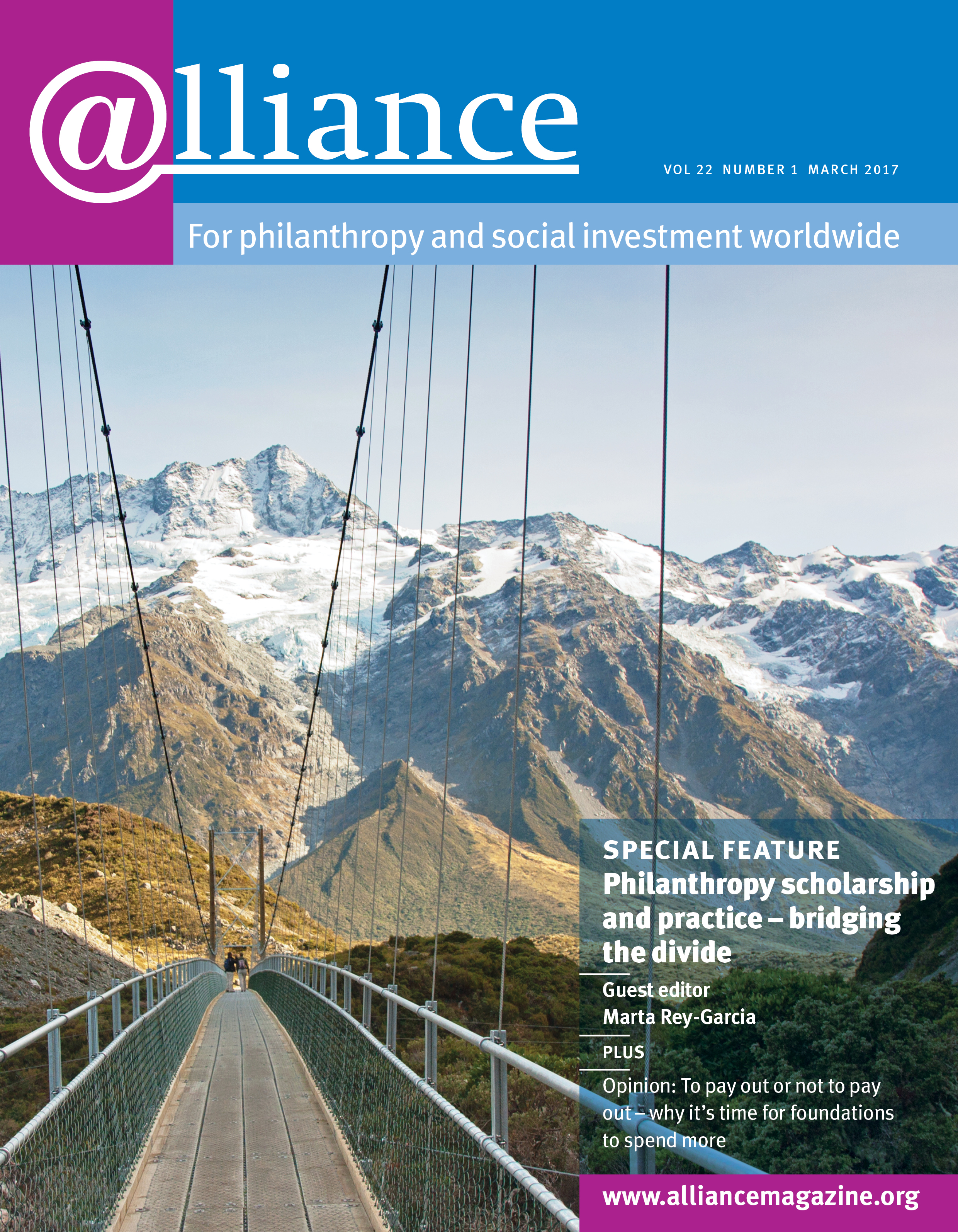As part of this special feature on teaching and research in philanthropy, Charles Keidan talks to Bhekinkosi Moyo of the Southern Africa Trust about the development of the first chair in African philanthropy at Wits University in Johannesburg, South Africa: about the reasons for establishing it, what it will offer – and the obstacles along the way.
 What is the background to the chair in African philanthropy?
What is the background to the chair in African philanthropy?
There was a consensus among the African Grantmaker’s Network (AGN), which is now the Africa Philanthropy Network, and indeed from all those interested in African philanthropy, that one of our most immediate needs was to generate as much knowledge as possible on African philanthropy that was also as rigorous as possible. Compared to other regions, Africa was lagging behind. It’s about 15 years since those conversations started, so it’s been a long process.
Did the impetus come only from practitioners or were the universities interested, too?
The push really came from practitioners, partly because some of us had our feet in both the academic world as well as in practice and we realized that no-one from academia was writing on African philanthropy. But the interest could have been mutual. Just maybe.
Why do you think that was?
I think simply because there was no university or centre that was teaching philanthropy on the continent. We saw that as an opportunity for us as a sector to begin lobbying universities on the need to establish a chair.
Which universities did you talk to?
It seemed obvious to us that the countries that would immediately understand what we were talking about would be South Africa, Kenya or Nigeria, because by then, there were already a lot of established institutions dedicated to philanthropy in those countries.
Also it was convenience, because I had moved to South Africa and was working with the Southern Africa Trust. The trust led the initiative, as a member of AGN and because we work mainly with marginalized communities. Our initial idea was to try to locate the chair in one of the disadvantaged universities in South Africa, like Limpopo, or the University of Fort Hare.
However, we were also canvassing potential funders at the time and one of them said to us: ‘Why not start a chair in Johannesburg with a world-class university like Wits? It makes it easier for me as a funder to be associated with this university… if you locate it very far from Johannesburg, it becomes logistically a nightmare.’
So I approached Adam Habib at Wits, who I had worked with previously, and he immediately said ‘let’s do it’. The business school seemed the best place for it – there are probably more than 18 business schools across Africa, so obvious possibilities for collaboration – but it wasn’t straightforward because we were coming in from the philanthropic side, they come in from the profit-making side, and having to agree on what this would look like took some time. However, one of the things that helped us was that the business school realized it needed something innovative to enhance its work.
What research and teaching on philanthropy do you think is needed in Africa?
The curriculum looks at what is lacking in the field. One factor is that there is no proper theoretical and philosophical grounding of philanthropy in the continent, so there is a course designed to teach the philosophical underpinnings of giving in Africa.
There is also a course that will look specifically at the different forms of philanthropy across the world and at different legal and administrative structures, so that students will have the tools to design and manage their own institutions. There’s also a course that looks at the interface between philanthropy, development and public policy.
Who are these courses designed for?
There will be a core course, which is a masters degree. But we have also decided to develop executive courses. There are some practitioners who might not want to do a masters degree and all they want is a tool – maybe for fundraising, proposal writing, leadership and so on, so we are developing executive courses.
The research agenda comes from the same concerns as the curriculum. One of the areas we are interested in is informal giving. We don’t, for example, have a baseline of what giving looks like across the continent. And then there’s also the public policy question. There are two aspects to this. One is collecting and using data on philanthropy to inform and influence public policy.
The other is how philanthropy can work with policymakers to shape the development agenda that we want, and related to this is research on the policy environment for philanthropy across the continent, which will take us to questions such as taxation and incentives.
The way to look at this is really broad. When we met in December to go over the research agenda, some people were asking us if we could study the history of the kingdoms in Africa, to see if we could use philanthropic research as a way to study historical governance and conflict resolution. I think this will be fascinating.
There is no proper theoretical and philosophical grounding of philanthropy in the continent, so there is a course designed to teach the philosophical underpinnings of giving in Africa.
So why the decision to position the chair in a business school?

The first chair in African philanthropy is at Wits University in Johannesburg, South Africa. Photo credit: Paul Saad.
Most of the chairs around the world are located in public policy schools or in humanities, and the result is that they end up just focusing on non-profit management and public policy. We wanted a place where the chair could really benefit from both the humanities and the economics side.
Now, at the business school at Wits, there are already some centres that are very close to what we were looking at – a centre that focuses on ethics, a centre that focuses on innovation and creativity and emerging markets, so we thought if the business school has managed to bring in these social dimensions to its work, the kind of philanthropy that we want to focus on can be located here as well.
And if we were within the business school, we could immediately access the many companies that use the business school either to send their students to or for their own conversations, we could benefit from the economic data that we thought was missing from the study of philanthropy in the continent.
The third reason for the choice is that we realized the private sector is now positioned to play a driving role in economic emancipation across Africa and being in the business school might allow us to influence that.
It remains a balance and we have set up some structures to make sure the economic side doesn’t drown out the public policy, the social side of things. There’s an advisory committee, on which I represent philanthropy from the practitioner side, and I continually push that the chair recognizes that philanthropy is about people; it’s about relationships. And then we have a technical committee, which comprises the director of the business school, one of my directors, and some of the instructors within the university, who make sure that balance is maintained in practical matters.
What do you think of the criticism that situating the chair in a business school means that it leans towards lauding wealth and philanthropy rather than critiquing it?
We’ve always said that it should be multi-disciplinary and that it’s a pan-African chair, not simply a Wits business school chair, so we got professors and researchers from across the disciplines, as well as across the continent, to come and help design the curriculum and research agenda. And even when it comes to teaching, the faculty is going to be drawn from the pan-African community, not necessarily from the Wits business school.
For the first five years, it’s okay for the philanthropy sector to bear the burden of fundraising, so that we can guide the formative stages, but once the chair has taken root, the university can take over, because the systems will be in place and the shape will have been defined.
I understand there can be a tension between finding a sustainable funding model for a chair that allows it to be independent and having it funded by a philanthropist or a foundation. How is that working for you?
We looked at a couple of models, including raising an endowment. The director of the business school was adamant that we needed funding for at least five years before the project could go ahead. That was challenging because some of the donors who had promised money for an endowment had their own specific needs.
We initially wanted to call it the Nelson Mandela chair on philanthropy, which brought in donor interest, but Graça Machel pointed out that if we wanted it to look genuinely African, we needed another name because the funding for it should represent a wider range of resources. So we said ‘let’s just call it the African chair on philanthropy, that way it allows us to name different components of it in different ways’. But when we dropped the name Nelson Mandela, the prospects for endowment dropped, too.
So we had a compromise – that we would raise enough money for a certain period of time, while developing the financial model for an endowed chair. Student fees are part of this. We also want to approach high-net-worth individuals in Africa, and ask them to adopt certain courses or programmes, but we have been very cautious about it because some are quick to say ‘we will fund it, but here are our conditions’. And the conditions were taking us away from what we wanted to achieve.
We got professors and researchers from across the disciplines, as well as across the continent, to come and help design the curriculum and research agenda.
Why would the university not fund it itself just internally?
Well, at one point there was a feeling that if the university really wanted this, it would bankroll it. Of course it’s not as simple as that because it is not a programme that the university initiated.
It’s a slow process. To begin with the university did not put in any money. Now, it provides the core support – office space, administration, etc. From 2018, the university will take over the payment of the professor when the first intake of students will be admitted. Eventually, it’s likely to be fully embedded in the university.
My view is that, for the first five years, it’s okay for the philanthropy sector to bear the burden of fundraising, so that we can guide the formative stages, but once the chair has taken root, the university can take over, because the systems will be in place and the shape will have been defined.
In terms of its shape, what would you like to see in ten years?
So in five to ten years from now, what we really envisage is a centre on philanthropy, which houses knowledge generation, debates and dialogues on the interface between the public, civil and private sectors, a platform to shape development discourse and a centre where we can measure the impact of African philanthropy.
Bhekinkosi Moyo is head of the Southern Africa Trust and chair of the Africa Philanthropy Network. Email bmoyo@southernafricatrust.org






Comments (0)